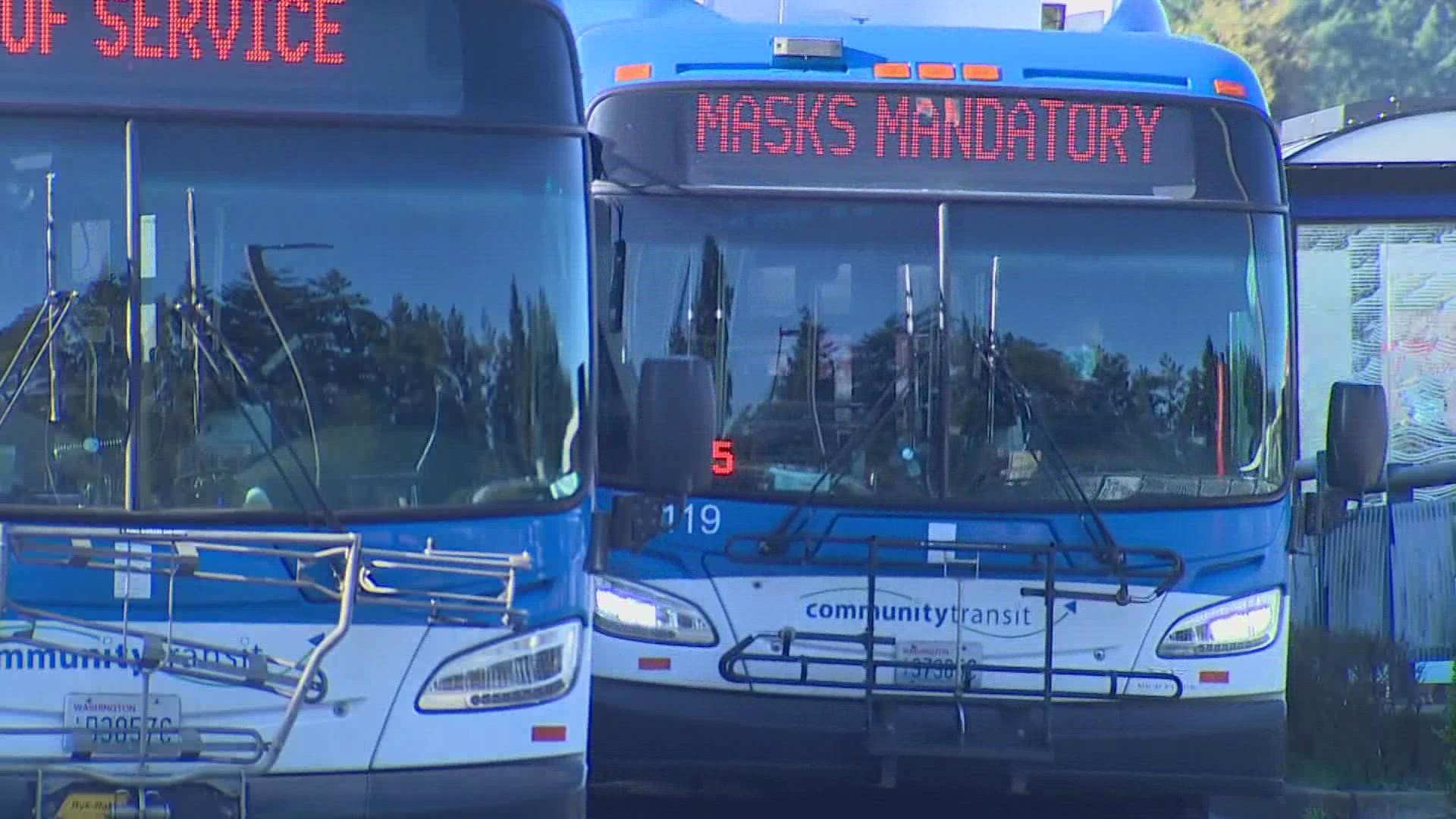OLYMPIA, Wash. — The Washington State Supreme Court heard arguments Thursday in the case of a Snohomish County man who was arrested after failing to pay bus fare.
When Zachary Meredith boarded a bus in 2018, a Snohomish County Sheriff's deputy asked him for proof of payment during a routine check.
He did not provide proof and was arrested after giving a false name to the deputy.
Meredith's attorney Tobin Klusty argued that because Meredith had been stopped by an armed deputy he was technically "seized" by police, violating his right against illegal search and seizure.
Klusty claimed there was no reason for the deputy to assume his client didn't pay.
The attorney argued it's no different than driving a car.
"Officers cannot stop individuals driving on public roadways just to see whether or not they have proof of registration or a valid driver's license," Klusty told the court.
The case comes down to a matter of consent.
Deputy Snohomish County Prosecutor Nathan Sugg told the court it's a common sense matter of knowing that you're supposed to pay when you ride public transit -- a rule that dates back to 1912 in Washington.
"An individual likely consents to following the rules of transit at the time they board transit," said Sugg.
Those rules, Sugg argued, include paying a fare and expecting someone to check whether you did.
But there was a bigger question ruminating in the courtroom.
"Would this case be here if it weren't a fully armed law enforcement officer who conducted the fare collection?" Justice Mary Yu asked.
Other justices pondered the same issue -- whether the Fourth Amendment only applies to law enforcement, or if it could it also apply to a bus driver or transit worker.
If the justices rule for the passenger it could mean no one riding any form of public transportation could be asked for proof of payment.
That could result in millions of dollars in losses for transit systems across the state.
The justices are expected to announce their decision in several months.

